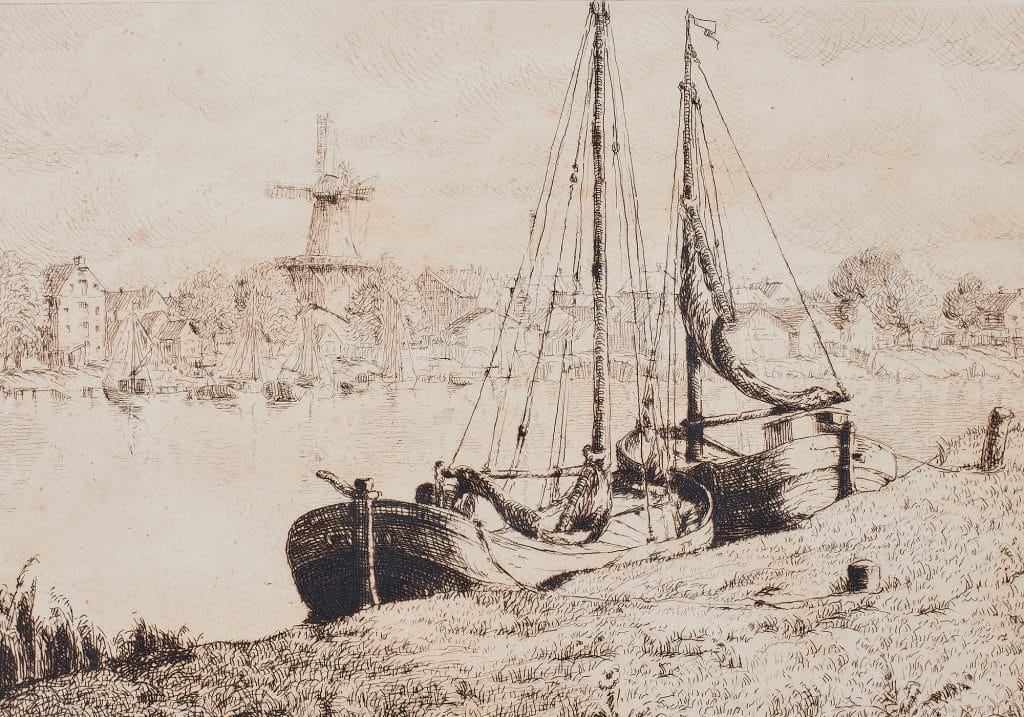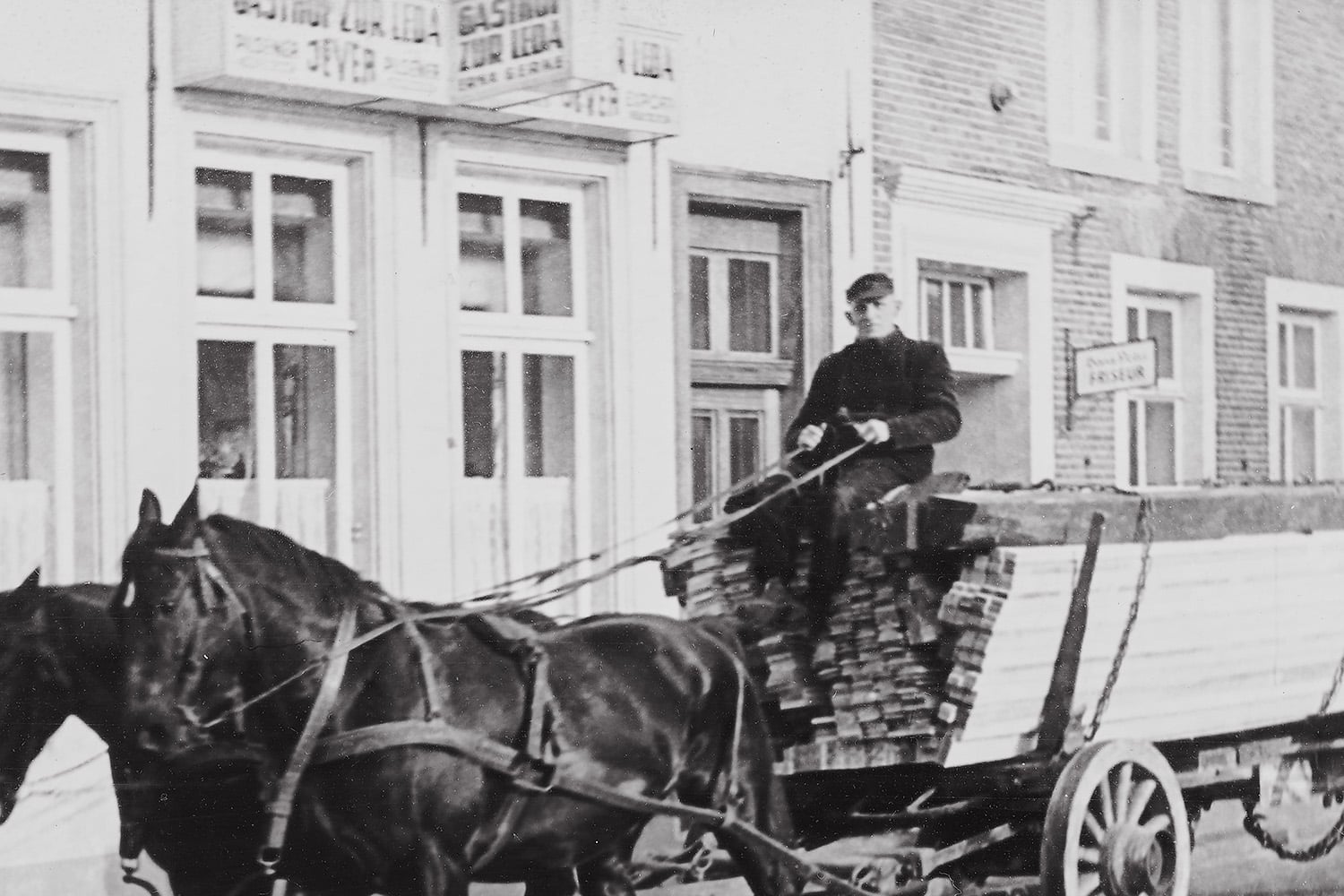Traditionally modern.
Why has wood been part of our family for over 260 years? Perhaps because this material is a bit like us: with distinctive features, with its own character, reliable, flexible and naturally sustainable.

Why has wood been part of our family for over 260 years? Perhaps because this material is a bit like us: with distinctive features, with its own character, reliable, flexible and naturally sustainable.
 It is the Age of Enlightenment – but also a century of many wars in Europe. In the territory of present-day Germany alone, some 300 small states and royal houses are fighting for power and prestige. From the middle of the century onwards East Frisia is under Prussian rule and experiences an economic upswing: new free ports are opened, the postal system is expanded and large marshy areas are reclaimed. And a small grocery shop in Leer is transformed into a timber company that operates beyond the borders of the region.
It is the Age of Enlightenment – but also a century of many wars in Europe. In the territory of present-day Germany alone, some 300 small states and royal houses are fighting for power and prestige. From the middle of the century onwards East Frisia is under Prussian rule and experiences an economic upswing: new free ports are opened, the postal system is expanded and large marshy areas are reclaimed. And a small grocery shop in Leer is transformed into a timber company that operates beyond the borders of the region.
Read on

The Congress of Vienna restructures Europe, social achievements change the face of society. Steamships, railways and the Industrial Revolution are changing not only our economy but also our lives. At the same time colonialism and emerging nationalism are creating new conflicts. In the violent storms of these times Garrels manages to establish itself as a successful business well beyond the borders of East Frisia. Weiterlesen
 Hardly any other epoch offers so many watersheds as the 20th century: world wars, nuclear and natural disasters, the collapse of political systems and the complete reorganisation of geopolitical structures. The ups and downs of this century also hit Garrels hard. Wars and economic crises repeatedly bring the company to the brink of ruin. But the company manages to avert this with perseverance, entrepreneurial skill and an unwavering commitment to quality. Weiterlesen
Hardly any other epoch offers so many watersheds as the 20th century: world wars, nuclear and natural disasters, the collapse of political systems and the complete reorganisation of geopolitical structures. The ups and downs of this century also hit Garrels hard. Wars and economic crises repeatedly bring the company to the brink of ruin. But the company manages to avert this with perseverance, entrepreneurial skill and an unwavering commitment to quality. Weiterlesen
 Globalisation, digitalisation, climate change – the first decades of the new millennium are characterised by profound change. Not just in the economy, but in all areas of society. The changes bring with them completely new challenges that many traditional companies in the timber industry are simply no longer able to cope with. Weiterlesen
Globalisation, digitalisation, climate change – the first decades of the new millennium are characterised by profound change. Not just in the economy, but in all areas of society. The changes bring with them completely new challenges that many traditional companies in the timber industry are simply no longer able to cope with. Weiterlesen